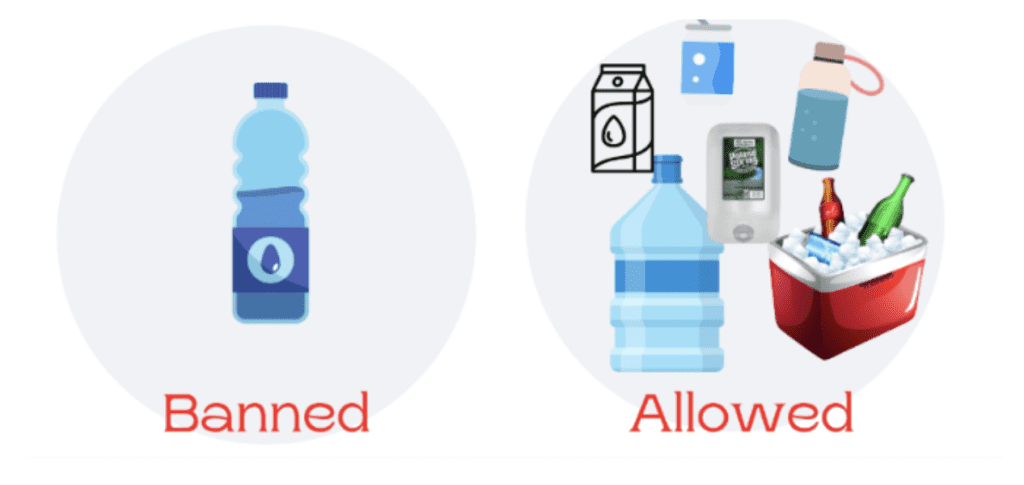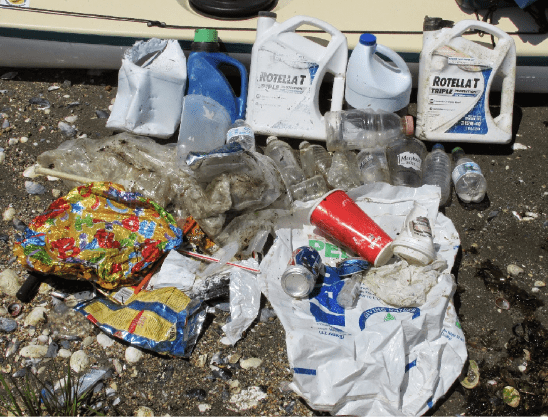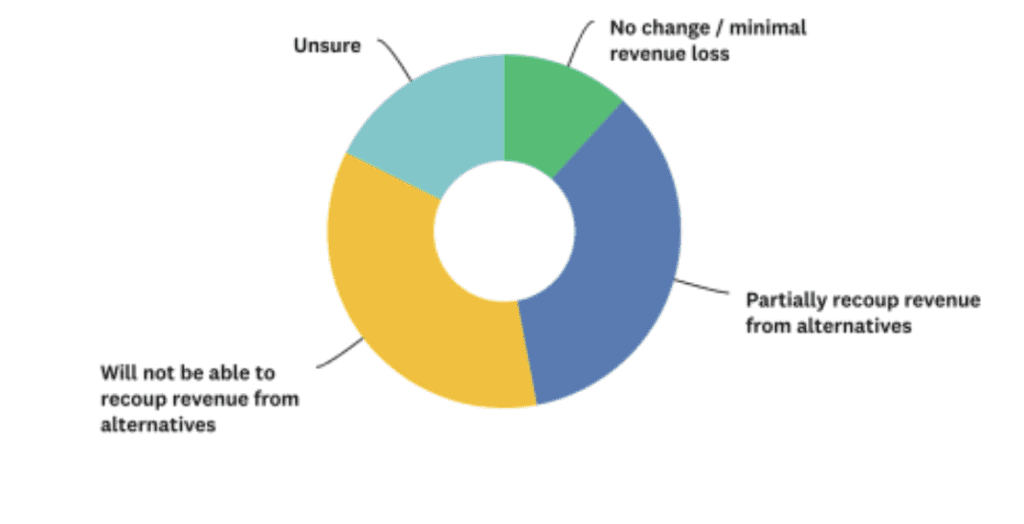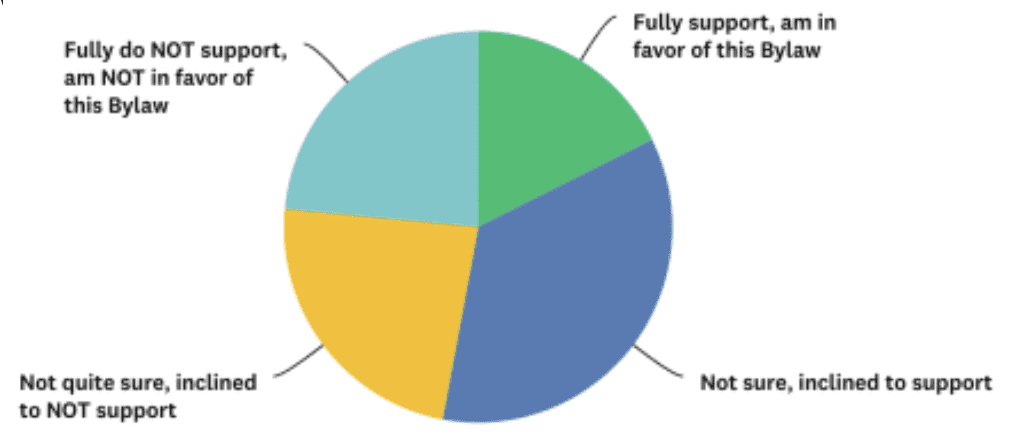
March 29, 2023 Submitted by Cleaner Greener Hingham
Voters will consider a number of important issues at Spring Town Meeting, including approving a bylaw from Cleaner Greener Hingham (CGH) banning the sale of plain water in small single-use plastic containers under one gallon in size. As voters consider their options, we – the members of CGH – would like to answer some of the most frequently asked questions about our bylaw and why we are proposing this change.
What does the bylaw say?
The bylaw would make it unlawful to sell non-carbonated, unflavored drinking water in single-use plastic bottles of less than one gallon in the Town of Hingham, beginning January 1, 2024. There are no restrictions on residents’ personal use of these products within town.
What is the penalty for non-compliance?
There are no restrictions on residents who choose to use and carry single use plastic water bottles. While we encourage people to bring reusable bottles, we understand there are situations that may not be possible. Therefore the intent is to still offer other larger options and containers of water.
Stores or people who sell this product would be subject to the following fines: first violation gets a written warning, second violation gets a $100 fine, third violation gets a $200 fine, fourth violation and subsequent violations get a $300 fine.
Why water?
Plastic water bottles are easily replaceable. The best alternative is a reusable water bottle that can be refilled on-the-go. We are partnering with the Weir River Water System to install two additional public bottle filling stations in Hingham. The Town of Hingham, at our prompting, has also applied for a grant to install a third new public bottle filling station.
If you forget your reusable bottle or can’t get to a filling station, a number of options are already on the market. In researching this proposal, our committee was able to find more than 10 non-plastic options for water, beginning at $1.19. All were found for sale in Hingham.
Why don’t we ban all single-use plastic bottles?
Hingham has always taken a thoughtful approach. After much research of what has worked in other communities, and our plastic bag ban, this seemed the most logical next step. Focusing on soda or other beverages bottles would have the added battle of pushback from large companies and it made more sense to start encouraging behavior change with something that is already commonly done. Many people already bring a reusable bottle with them and most students in the schools do so.
Who else is doing this?
Twenty-four other Massachusetts communities already have similar bylaws in effect, including fifteen communities on Cape Cod and all of Martha’s Vineyard and Nantucket. Looking around the country, New York, California, and Oregon have all passed legislation to limit single-use plastics. Globally, Canada banned the importation and manufacture of certain single-use plastics at the end of last year. The European Union, the United Kingdom, India, China, Kenya, and Chile have all passed legislation banning certain single-use plastic items.
What is the State doing about the problem of single-use plastics?
The State is encouraging communities to reduce their plastic waste in various ways. For example, communities that ban two single use plastic items (including single use water bottles or plastic bags) are eligible to earn Recycling Dividends Program points. These points translate into grant money to be reinvested in a community’s recycling program.
The State of Massachusetts’ Solid Waste Master Plan calls for a 30% reduction in waste by 2030 from a 2018 baseline. The Plan includes multiple mentions of plastic and specifically names “single use packaging” as a reduction priority. The report also lists single-use PET bottles as a potential target for waste bans.
Why should Hingham take action?
Hingham is lucky to have a stunning coastline as one of our main attractions. Unfortunately, coastlines like ours are the main entry point for the 86 million metric tons of plastic estimated to be in the ocean. As residents of a coastal community, we have a unique opportunity and responsibility to limit our plastic consumption where possible in order to help keep our coastline healthy and pristine for generations to come.

This picture from the blog TrashPaddler shows debris collected on a paddle between Hingham Harbor and Spectacle Island.
Won’t this hurt our local small businesses?
We surveyed local businesses to understand the potential impact of this bylaw. Half of these businesses not only understood the impact and importance of this bylaw, but also felt they could recoup some or all of their revenues selling alternative options.

More than half of businesses surveyed were either in support of the bylaw or inclined to support it.

How does this bylaw align with Hingham’s goals?
Hingham is an environmentally-conscious community. The recently revised Master Plan lists protecting the environment and preparing for climate change as a top goal. In 2019, the Town adopted a goal of net zero carbon emissions by 2040 and has since been engaged in a climate action planning process. Plastic production, disposal, and incineration is a carbon-intensive process (equaling 190 coal power plants in 2019) that is not in line with our voted upon goals.
Many in our community have engaged in conversations on the topics of equity. Plastic recycling centers are disproportionately located in low-income and BIPOC communities. These centers have negative health effects on both workers and neighbors. In Hingham, the plastics recycled through the Transfer Station will be sent to facilities in communities with lower income and education levels and higher BIPOC populations.
But I recycle my plastic bottles…
Estimates vary, but it is believed that less than 20% of plastics will actually be recycled. The rest will be landfilled, burned, or end up as litter on land or in the ocean. When plastics are recycled, they almost always require the addition of new “virgin” plastic, which requires the extraction of fossil fuels, before they can be made into a new product. Producing products with recycled plastic is also more expensive than using new plastic, further discouraging this type of production.
Please join us at Town Meeting on April 24th to voice your support for this important next step in Hingham’s journey to limit plastics.

